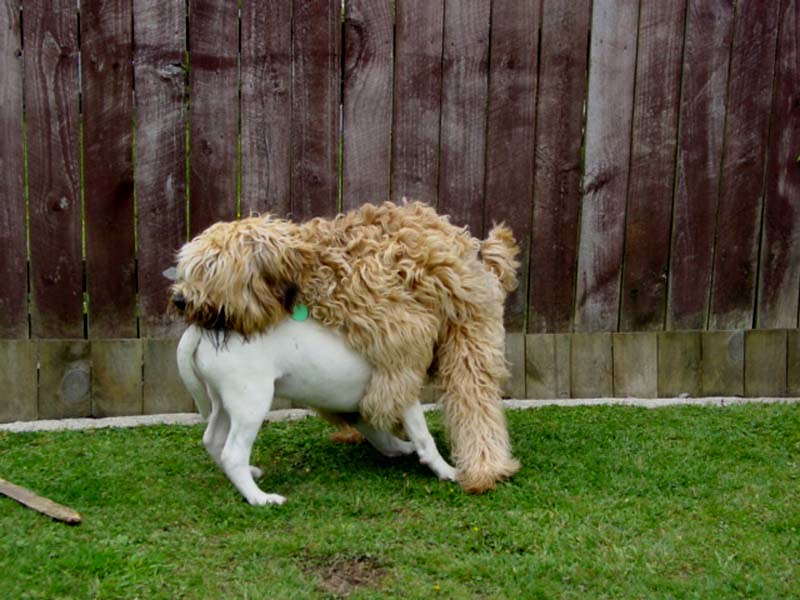Why does my dog yawn so much Ah, the adorable sight of a puppy’s yawn – it’s hard not to smile, isn’t it? But have you ever wondered why dogs yawn? If so, you’re in luck because that’s exactly what we’re delving into in this article. Are their yawns motivated by the same reasons as ours? Is it simply a sign of tiredness, or could it be a form of communication?
If the timeless question of ‘why do dogs yawn?’ has captured your curiosity, then you’ve landed in the right spot. Our aim is to keep you engaged and wide awake as we uncover the mysteries behind dog yawns. From understanding why your furry friend might be feeling tired to recognizing the various types of stress that can trigger yawning, we’ve got you covered.
And fear not, if you’re struggling to keep your own yawns at bay, we’ve got just the solution for you. Go-to for engaging and effective puppy training. With a personalized programme designed to suit your puppy’s needs and round-the-clock support from our team of professional dog trainers, you’ll be on your way to success in no time. So why wait? Let’s embark on this journey together and uncover the secrets of dog yawns why does my dog yawn so much.
Why Do Dogs Yawn?
It’s easy to jump to the conclusion that dogs yawn for the same reason humans do – when they’re tired. And while that’s often the case, yawning in dogs serves a broader purpose beyond just signaling fatigue. So, let’s delve deeper and uncover the intriguing messages our canine companions convey through their yawns. Keep reading to unravel the secrets behind dog yawns and gain insight into their fascinating world of communication.

Dogs yawn because they’re tired
Just like humans, dogs exhibit yawning behavior when they’re feeling tired. Much like us, they yawn to intake more oxygen, refreshing their bodies and minds. So, if you notice your furry friend yawning, it could be a telltale sign that they’re in need of some well-deserved rest why does my dog yawn so much.
Dogs yawn because they’ve just woken up
Dogs often engage in a delightful routine of stretching and yawning. This morning ritual serves a dual purpose: not only does it enable them to intake more air, but it also provides an opportunity to stretch their facial muscles. It’s a wholesome start to their day, ensuring they’re both physically and mentally prepared for whatever adventures lie ahead.
Stress can make a dog yawn
A yawning dog can often be a sign of stress. When faced with challenging situations, such as navigating through heavy traffic or encountering unfamiliar dogs, dogs may respond by yawning. Additionally, noisy household appliances like dishwashers and washing machines can also induce stress, prompting yawning as a coping mechanism. So, if you notice your furry friend yawning more frequently in certain environments or situations, it may be a subtle indication that they’re feeling overwhelmed and in need of reassurance why does my dog yawn so much.
Dogs yawn as an appeasement gesture
Dogs are masters of communication through body language, and yawning serves as one of their many subtle appeasement gestures. Often referred to as calming signals, these gestures convey to others that they pose no threat. When feeling apprehensive about the approach of another dog or person, dogs may employ yawning as a means to diffuse tension and prevent potential conflict. Coupled with other behaviors such as turning their head and averting their gaze, dogs adeptly navigate social interactions, showcasing their remarkable ability to avoid confrontation and maintain harmony within their environment. It’s a lesson in conflict resolution we humans could certainly learn from! If you’re intrigued by this topic, delve deeper into our body language article to uncover more fascinating insights into the intricate world of canine communication.
Why is my dog so tired?
If your furry friend appears unusually exhausted or has been catching extra Z’s lately, there’s often a clear explanation behind it. Perhaps they’ve had an exhilarating play-date with their canine companions or indulged in an intense exercise session at the park. However, it’s essential to note that lethargy can also be a red flag for underlying health issues. So, if your dog seems unusually listless or fatigued, it’s wise to consider scheduling a visit to the vet to rule out any potential illnesses or health concerns. After all, our furry friends rely on us to keep them happy and healthy!
You have a young puppy who needs a lot of sleep
Puppies have a knack for snoozing that might surprise you at first. Trust us, their sleep requirements can be downright astonishing! It’s not uncommon to catch them almost nodding off while standing up, so the occasional yawn is par for the course.
If you’re curious about just how much shut-eye your puppy needs, dive into our comprehensive guide to puppy sleep habits. We assure you, it’s an enlightening read that’s sure to pique your interest – nothing that will leave you nodding off! After all, understanding your puppy’s sleep patterns is key to ensuring they’re happy, healthy, and full of energy for all those delightful puppy antics why does my dog yawn so much.

Your dog has had a lot of exercise
If you’ve ever taken your dog to the park for a lively game of fetch with their canine companions, you know they’ll come home absolutely pooped. And if you’re the type who relishes long hikes or walks in the hills on weekends, rest assured all that physical and mental exercise will have the same effect on your furry friend. So, when you see your dog flopping down for a well-deserved nap after a day of outdoor adventures, you’ll know they’ve had a paw-some time!
You’ve been doing a lot of training
Just like humans, learning can be quite exhausting for dogs too! Think back to your school days – all that problem-solving and concentration can really take a toll. Well, the same goes for our furry friends. After a rigorous training session, their little brains are working overtime, so it’s no surprise they’re ready for a well-deserved nap afterwards. So, next time you finish a training session with your pup and they curl up for a snooze, know that they’ve been working hard to impress you with their newfound skills!
You have a senior dog
Senior dogs, bless their hearts, may not have the same boundless energy as their younger counterparts. With age comes wisdom, but also a slower pace of life. It’s perfectly normal for senior dogs to seem more tired than their younger whippersnapper counterparts. So, if you notice your old pal taking more naps or moving a bit slower, it’s just a natural part of the aging process. Give them a little extra love and understanding, and they’ll continue to be your loyal companion through thick and thin why does my dog yawn so much.
You have a breed of dog who likes to sleep a lot
Some dog breeds just seem to have a natural affinity for snoozing, and they take their naps very seriously. Take Greyhounds and Whippets, for example – they’re renowned for their love of lounging around. Chow Chows, Basset Hounds, and Bulldogs also fall into this category, with a penchant for plenty of shut-eye. So, if you find your furry friend from one of these breeds curled up in their favorite spot for the umpteenth time, don’t worry – they’re just indulging in their favorite pastime!
Your dog might be stressed or anxious
Just like humans, dogs can experience mental exhaustion from prolonged worry or stress. Whether it’s fretting about the outcome of an election or feeling anxious about a particular situation, constant worrying can take a toll on their mental well-being. If you notice your furry friend seems preoccupied or on edge, it’s likely draining their energy reserves. In such instances, bedtime becomes their sanctuary, offering a much-needed respite from the mental strain. So, if your dog is seeking solace in sleep, it may be their way of coping with the stresses of the day why does my dog yawn so much.
Your dog might be bored
It may seem counterintuitive, but bored dogs are often sleepy dogs. When our furry friends don’t have enough mental stimulation or activities to keep them engaged, they can become bored and, sadly, even a bit downcast. In such cases, they may lack the enthusiasm to do much else besides sleep. So, if you notice your pup seems disinterested or lethargic, it could be a sign that they’re craving some excitement and mental stimulation to perk them up. After all, a tired dog is not always a happy dog!
Your dog might be dehydrated
your furry friend stays hydrated is crucial for their overall health and energy levels. If your dog isn’t drinking enough water, or if you happen to reside in a hot climate, dehydration can quickly set in, leaving them feeling lethargic and tired. And let’s face it, living in a warm climate does have its perks, but it also means taking extra precautions to keep our furry companions cool and hydrated. So, while we may be a tad envious of your sunny locale, just remember to keep that water bowl topped up and your pup will be bounding with energy in no time!

Your dog might be anaemic or have a parasite
Roundworms, hookworms, and other unsavory types of worms can wreak havoc on your dog’s health, causing conditions like anemia as they feed off their blood. And let’s not forget about fleas – a serious infestation can also lead to anemia in our beloved pets. These are all downright unpleasant scenarios, but fear not! With the right guidance and treatment, you can swiftly rid your furry friend of these pesky parasites, ensuring they’re back to their happy, healthy selves in no time. So, arm yourself with knowledge and take action – together, we’ll conquer these disgusting invaders!
Your dog might have another illness
Various illnesses, including hypothyroidism, kennel cough, parvovirus, and leptospirosis, can leave your dog feeling fatigued as their body battles infection. It’s a tough time for them, so ensuring they’re up to date with their vaccinations is crucial. Vaccinations offer a layer of protection against these illnesses, sparing your furry friend from unnecessary suffering and helping them stay healthy and energetic. So, be proactive about keeping your pup’s vaccinations current – it’s a simple yet effective way to safeguard their well-being and keep them bounding with vitality!
Why might my dog be stressed?
Indeed, yawning in dogs can serve as a subtle indicator of stress, which can stem from various sources such as emotional factors, pain, or underlying illness. Let’s delve deeper into these potential triggers to gain a better understanding:
Emotional Stress: Dogs, like humans, can experience emotional stress due to changes in their environment, routine, or social interactions. Events such as moving to a new home, the arrival of a new pet or family member, or loud noises like fireworks can all contribute to feelings of anxiety or stress in our furry companions.
Pain: Physical discomfort or pain can also manifest as stress in dogs, leading to behaviors like yawning. Whether it’s due to an injury, arthritis, dental problems, or other health issues, it’s essential to address any potential sources of pain promptly to alleviate your dog’s distress.
Illness: Underlying health conditions, such as infections, digestive issues, or systemic diseases, can also trigger stress responses in dogs. Yawning may be one of the subtle signs that your dog is feeling unwell and in need of veterinary attention.
By recognizing these potential sources of stress in dogs and addressing them promptly, we can help ensure our furry friends lead happy, healthy, and stress-free lives why does my dog yawn so much.
A change in routine can cause stress
Dogs thrive on routines. Establishing consistent daily schedules can help them feel more secure and confident, allowing them to find their own rhythm and shine. By creating reliable routines, you provide your furry friend with a sense of stability and predictability, which can significantly contribute to their overall well-being. Whether it’s meal times, walks, play sessions, or bedtime rituals, sticking to a consistent schedule can help your dog feel more at ease and content in their environment. So, embrace the power of routine and watch as your canine companion blossoms into their happiest, most radiant self!
Stressed about other dogs
Just like humans, not every dog is a social butterfly. Some canines are selective about their social circle and may feel overwhelmed or stressed by new introductions. Imagine it’s like being back in primary school, and a new kid walks into the classroom. It can be pretty nerve-wracking, especially if they seem cool and you’re not sure how you’ll fit in. Similarly, for some dogs, meeting new dogs or people can provoke feelings of apprehension or uncertainty. Understanding and respecting your dog’s social preferences can help them navigate these situations with greater ease and confidence. After all, everyone deserves to feel comfortable in their social circles, whether they have two legs or four!
A fear or phobia will cause stress
Yawning when left alone can be a telltale sign that your dog is grappling with separation anxiety or that they’ve been left alone for an extended period. Factors such as fireworks, thunderstorms, bustling traffic, or visits to the vet can all induce stress in our furry friends. These situations can trigger feelings of unease or apprehension, leading to behaviors like yawning as a coping mechanism. Understanding your dog’s triggers and providing reassurance and support during stressful times can help alleviate their anxiety and promote a sense of calm and security. After all, our furry companions rely on us to be their steadfast companions through both the calm and stormy moments of life.




